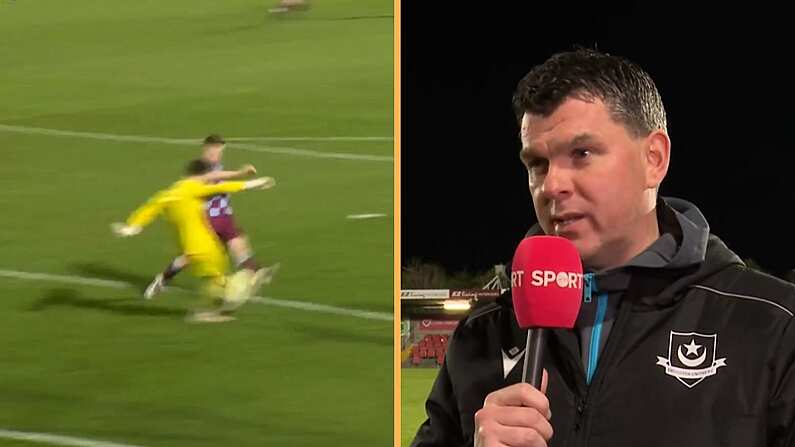Some players are just round pegs for round holes. What Peep Show would term ‘cleanshirts’. We have a look at a few who posed problems for managers to solve, but problems that helped take football off the traditional tramlines.
Xabi Alonso:
Arrigo Sacchi remarked that “Football has a script. The actors, if they’re great actors, can interpret the script and lines according to their creativity, but they still have to follow the script.”
Xabi Alonso interprets his lines in such a way that certain passes, ways of moving and positioning have become traits that are inextricably linked to him. You don’t carve a club career with Liverpool, Real and Bayern - and become the cornerstone of the international team of recent times - without being fantastic, but he’s also done so by remoulding the deep-lying position in his own image. He’s also a lovely man.
Alonso must be a joy to play with as an attacker. His positioning ropes opposition players out of position, while deft robbery sets him up to pass with almost no backswing and unerring accuracy. In particular, he is the arch passer from deep, dutifully delivering accurate cross-field balls while retaining the intensity in the pass to prevent defenders from regrouping in time. He is the modern attacker’s midfielder.
Dietmar Hamann:
Didi Hamann belongs in black-and-white. He celebrated Liverpool’s win in Istanbul by sparking up a fag in the showers, like some kind of ‘50s dockworker. His style of striking had that two-feet-off-the-ground, Manic Mailman feel to it. But while his ways looked so out-of-sync with the time, he was perfectly in tune to his surroundings.
Hamann was the king of the sneaky foul before the halfway line; the one that stopped the counter and didn’t earn a yellow. He was a crucial element in a Liverpool side that earned the silverware it did by being more than the sum of its parts, and by a grittiness that was encapsulated in Hamann oddly-diplomatic approach. He cajoled his side by inimitable example.
Dimitar Berbatov:
Let’s just be honest. We owe each other that. When you clicked that headline – and we’ve all had a few drinks here – you knew that Dimitar Berbatov was going to loom large. Such a know-it-all, aren’t you? You’re just like your mother.
Berbatov was footballing opium. Fans knew that he was the best they’ll have, but that he would ultimately be their death. Imagine Lou Reed hazily playing over indulgent goals like this.
It is a rare virtuoso that means you can talk about that touch to Fulham fans, and they need no more elaboration. He calmed frenetic matches with half-speed flashes of conjured technique.
What particularly elevates Berbatov is that – with the obvious exception of Manchester United – the guts of his club career had that not-quite-elite tinge that renders him a club legend in places where technical genius was in shorter supply. Tottenham capturing his signature from Leverkusen was a real coup, and they used his louche way to devastating effect. Fulham fans also seem remarkably chipper given that he and Martin Jol conspired to relegate them by being - in turn - disarmingly avuncular and charmingly lazy.
John Charles:
John Charles was voted Serie A’s greatest foreign player. Just let that sink in for a second.
‘The Gentle Giant’ was a classic bygone footballer in that he immediately looks older than your Dad, while being 18. Woodbines for breakfast.
Scoring 157 goals in 297 games for Leeds – as well as 108 in 155 for Juve – is enough to cement your position as an all-time great. But the fact that for huge chunks of his career he played as a centre-back elevates him to an almost unique plain. ‘Almost’, unless you’re Dion ‘Homes Under The Hammer’ Dublin. However, unlike Dion, Charles managed to traverse his 26-year career without getting a single yellow card.
26 years.
While playing centre-back for a 1960s Leeds team.
Perverse.
Juan Roman Riquelme:
Juan Roman Riquelme was an absolute gift to the footballing bore. Droning on about their late-night scouting of Argentinian football (which didn’t happen) and insisting this lad from Argentina was about to change the game (annoyingly, he sort of did.)
He had been the shining light for Boca, drawing fairly obvious comparisons with another diminutive Argentinian of prestige. Beginning to carve out the number 10 role when it was far less of a recognised position, a move to Barcelona should have proved the start of his most potent period. It wasn’t to be. Riquelme did manage to illuminate La Liga with a brief but potent spell with Manuel Pellegrini’s Villarreal – a penalty from a continental reunion with the Catalans.
Riquelme was an Argentinian that did his best work under the floodlights; the fog-in-the-lung environs of La Bombonera. His heart belonged to one club - the club that defined him, and one that he modelled in his own image by the force of his performances.











